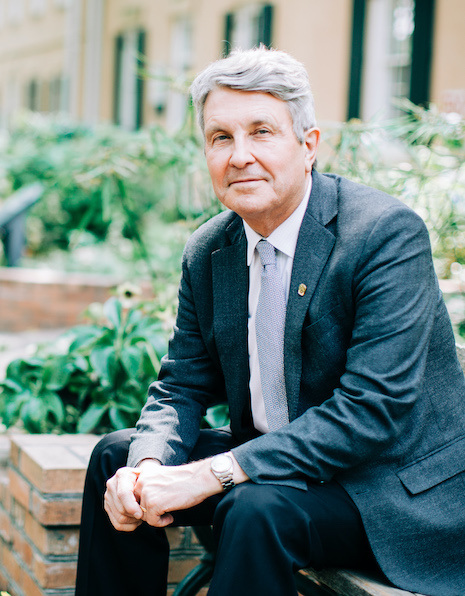
As I write this, I’m still marveling over this year’s Revocation. Great speeches, wonderful music. The graduating seniors of this resilient and oh-so-talented class were presented with their Honors medallions. They had completed the most robust requirements for graduation “with honors” in the country, earning at least 45 honors credit hours (with at least a 3.3 GPA overall), meeting our distribution requirements across the disciplines, engaging in at least one beyond-the-classroom activity (internship, study away, service-learning, research), and completing a senior thesis. As the Honors College has grown (over 2,300 now), we have evolved our staff and our procedures to support and guide these students. They’re amazing, and it’s gratifying work.
How amazing are they? Well, let me tell you about the two winners of the Mould Senior Thesis Award, created a decade ago by the family of William Mould, the first dean of the South Carolina Honors College.
Carlos Sanchez-Julia’s senior thesis was based based on a 23-day research trip to the rainforest in Ecuador in the summer of 2023. Funded by the Honors College and the university’s Magellan program, and directed by Robert Kopack of the geography department, Carlos conducted 28 surveys, collaborating with researchers from conservation groups and other universities. His fieldwork illuminates the agricultural practices in Ecuador’s Mache-Chindul Ecological Reserve, where there is a fascinating and crucially important competition between two kinds of cacao farming, with dramatically different implications for the reserve. Carlos’s work combined economic geography, political ecology, critical development studies, and sustainable resource use. His bright future includes most immediately working this summer for the U.S. House of Representatives Natural Resources Committee, and then this fall beginning his master’s degree at the University of Copenhagen as one of only 20 winners of the prestigious Erasmus Mundus Joint Masters award.
Our other winner, Meaghan Arnold, was nominated by Lydia Matesic, who’s in the biology department and directs the Cardiovascular Technology Program. As Professor Matesic puts it, “Meaghan pointed out the underappreciated parallels in the cellular mechanisms that promote both cancer and heart failure. Combined, these disorders account for the lion’s share of mortality worldwide.” Meaghan’s work “has opened the door to new avenues for drug design that could impact large numbers of individuals with cancer or heart failure worldwide.” An undergraduate whose research has the potential to change how we treat cancer and heart failure!?! Understandably, Professor Matesic intends to submit this work to “a high impact journal, and Meaghan will be first author.”
Student research is funded in part by generous donors to the Honors College—and this seems like a good place to say “thank you” to all our supporters, past and future.
